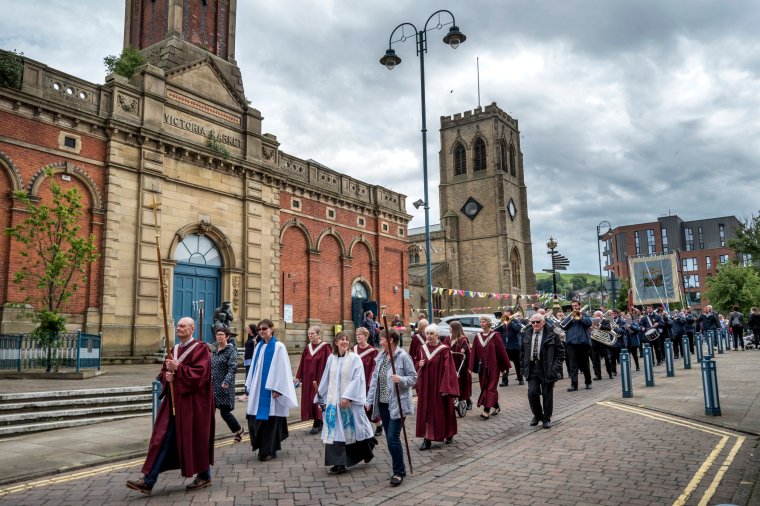When is Whitsun 2023? Date of Pentecost, the meaning behind Whitsunday and if it’s always a UK bank holiday

Whitsun, the Anglican holy day of Pentecost, will be marked on Sunday. The date is hugely important in the Christian calendar.
Falling on the fiftieth day after Easter Sunday, it commemorates the arrival of the Holy Spirit and the disciples following the death of Jesus Christ.
The festival also coincides with the Spring Bank holiday.
Here’s what you need to know about the religious celebration.
When is Whitsun this year?
This year, Whitsun is on Sunday 28 May, but the exact date varies from year to year. This is because it is marked seven weeks – or fifty days- from Easter Sunday.
The day after, Whit Monday, was a bank holiday up until 1972. This was later replaced with the Spring Bank holiday, but in 2023, Whit Monday falls on the same day.
How is Whitsun celebrated?
Traditionally, Whitsun is marked with a great feast, but different regions in the UK and Protestant denominations have their own way of celebrating the day.
In the Northwest, for example, Whit walks, accompanied by brass bands, choirs, and church clergy, march through Manchester and other major cities in the region.
Villages in Cambridgeshire sing a unique song only performed on the day, while Bampton, Oxfordshire, celebrates with Morris dancing.

What is the meaning behind Whitsun?
The name of Pentecost derives from the Greek word “Pentekostos”, meaning 50, in reflection of its origins in the Jewish holiday of Shavuot (marked on the 50th day after Passover).
The Anglo-Saxon word ‘wit’ means ‘understanding’ which could mean that the festival represents a day of baptism. On these days, worshippers wear white, which represents the disciples being overcome by the wisdom of the Holy Spirit.
In the Bible’s New Testament, the apostles were inspired to talk in tongues when the Holy Spirit descended as they prayed together at the Shavuot festival.
Hearing them speaking in an unfamiliar language, the gathered onlookers in Jerusalem believed them to be drunk.
However, Saint Peter explained to them that the apostles were inspired by the spirit and delivered the first Christian sermon, leading to the conversion and baptism of 3,000 people.
As a result of Peter’s sermon, many consider Whitsun the birth of the Christian church as an official movement.
Is Whitsun always on a bank holiday?
Whitsun itself is always on a Sunday, and in the UK, the Bank Holiday on the following day has been replaced with the Spring Bank holiday.
It is still marked as a Bank Holiday in many countries in Europe and Central Africa. In many of these countries, Whitsun is known as “the second day of the Pentecost.”
This usually comes in late May or early June. In 2024 the date will be May 19, because of an early Easter, and in 2025 it will be 8 June.





